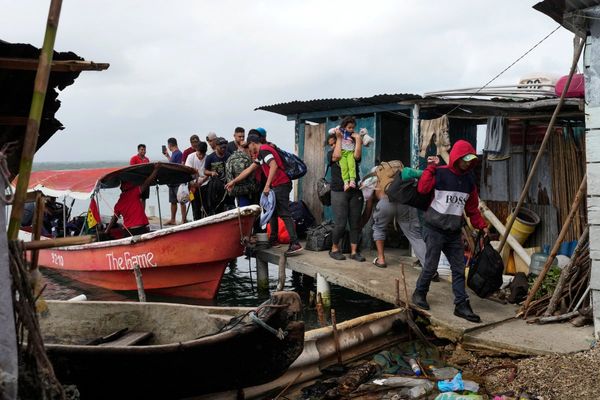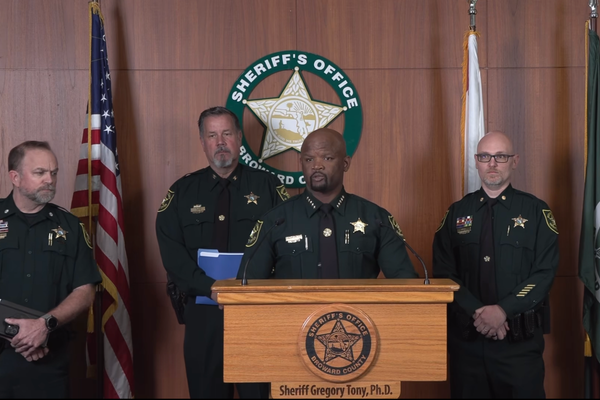
Illness is a great leveller. It comes to the rich and the poor, the famous and the invisible, those who have the best treatment on offer and those who have none, and to everyone in between, bringing with it the reminder that the body is frail and we are mortal. Time will run out.
King Charles is a unique symbol and someone who has had to live out his entire life in public, but he is also just a man, an old man who has a diagnosis of cancer. He is like no one else, and like everyone else who was born with nothing and will leave with nothing. And his sons, uniquely privileged men approaching their middle age, are also damaged children and will be children until their father dies and they step on to the front line – and one of them steps up to the throne. The painful spectacle of Harry racing back to see King Charles for a brief visit, and not even meeting his elder brother, is a reminder of how a family can be the saddest and unsafest place. The shadow of cancer, rather than healing that, exposes it.
We like to think that serious illness can have a transformative effect. In the face of an elemental threat, people can at last put away feuds and differences, the anger they have nurtured, the wounds they have suffered and caused. They can see what’s really important (love, as all the songs tell us; human connection) and come together, rally round, do their bit, care for the ill person and each other. That happens. A crisis can bring out the very best in people and force them into new ways of being with their loved (hated) ones. I know of many families who have behaved with astonishing tenderness towards the vulnerable patient and towards each other. I know of people who have dropped their end of the rope and healed ancient bitterness.
But illness can have the opposite effect, widening rifts, opening old wounds. Seeing a parent fall ill is terrifying, because however old and vulnerable they might have become, in our unconscious they remain figures of essential authority, the ones who made us, brought us into the world, looked after us and told us what to do. During their illness, we have to be the grown-ups, the care givers, at a time when we are returned to the raw, scared feelings of childhood, small in the face of something engulfing. If our parents are mortal, so are we. If their time is running out, so is ours.
Some people lay aside their normal life to be with their mother or father during their illnesses; others deal with the illness by denying it. Some write eulogies in their head. Some start thinking of wills and inheritance. Some run away in fear; they can’t bear the hospital ward, the darkened room, the bleeping machines. Some people seem indifferent. Some become irrational, others fiercely practical and competent. Some suffer anticipatory mourning. Siblings frequently fall out or feel resentful, guilty, unrecognised, frustrated, overburdened, furious. The intricate web of connections is strained and ripped.
Everyone deals with it in their own imperfect way, but a parent’s illness can be a tap root into a family’s deep, entangled past, where all the resentments, rivalries, feelings of being overlooked or undervalued live: our childish sense of life just not being fair, and what about me? Family is one of life’s enduring grand narratives, brimful of dramas, conflicts, hidden secrets and daily tragedies. When King Lear abdicates in old age, he cedes his authority and majesty to become a “poor, bare, forked animal” at the mercy of the world, and in so doing unleashes a war between his daughters. The play is about a world ending, about a king learning to be a man, and it’s also about the corrosive rivalry in a toxic family that had been held at bay by the father’s rule. When that ends, the balance of power shifts and the precarious edifice topples. A family is an infinitely complicated system that functions more or less well. Disrupt the system, and everything alters.

There can be a grim battle for validation around an ill parent, like an unseemly power grab, or like toddlers squabbling. What about that time when he had more than me, or she hurt me and you didn’t protect me, or I was punished unfairly? Who got the most, who got the least? Who was the most loved? Who was the most seen? In this bleak, zero-sum game, it feels like there’s only so much love to go around. What someone else gets is what I lose, and what I lose is what I most wanted, which is to be everything: the most loved, most rewarded, most recognised, the only.
The consciousness of time running out can give the scrabble for a parent’s approval and love great urgency. Soon it might be too late to rescue the past. Harry’s dash to be beside his father’s side reads like a frantic attempt to win forgiveness and love. That he didn’t meet William reads like an implacable door shutting. And even when a parent eventually dies (for, of course, Charles might well have decades, like his mother and grandmother before him), the struggle isn’t over, because it is a struggle with the self as well as with the other.
The painful truth is that it is almost impossible to separate from the family you grew up with, however harmful they might be to you or you to them. You can leave the country, choose not to see them, never talk about them, burn the photos, sever the links, think you have escaped and are free to be who you choose. But the formation of the self takes place in our earliest years, before memories are laid down, before words, within the family we are given. Our parents and our siblings exist beyond one’s personality and character, in our deep structure.
We are all children until our parents die, when we have to become our own imperfect parent. It is distressing to think that at this time of uncertainty, King Charles’s sons, who have endured such traumas together, can’t turn to each other for comfort. No one wins in a lonely fight like theirs.







